THC is the most abundant cannabinoid in weed, it is the compound that causes psychoactive effects. Parts of or products from the Cannabis sativa plant that contains significant levels of tetrahydrocannabinol are referred to as “marijuana” (THC). THC is also the active ingredient in marijuana that has the most impact on a person’s mental state. According to the United Nations, marijuana is used by 158.8 million people worldwide, or around 3.8 percent of the world’s population. In the United States, over 94 million people have admitted to taking it at least once. Read on to learn more about THC and its different forms and uses.
The main reason why THC is psychoactive is that it affects the brain’s cannabinoid receptors. The receptors are found in the brain and spinal cord and they have different effects depending on where they are located. When THC enters the body, it can affect the CB1 receptors which are located in the hippocampus and cerebellum. This changes how you perceive time, space, memory, coordination, and learning abilities.
 Cannabis plants produce a variety of substances called cannabinoids. They are a class of chemical compounds that activate the cannabinoid receptors in the brain and body. The two most common ones are delta-9 tetrahydrocannabinol (THC) and cannabidiol (CBD).
THC is psychoactive, but CBD is not. In other words, THC can get you high while CBD usually does not. There are many benefits from both such as being able to help those with anxiety and chronic pain.
Cannabis plants produce a variety of substances called cannabinoids. They are a class of chemical compounds that activate the cannabinoid receptors in the brain and body. The two most common ones are delta-9 tetrahydrocannabinol (THC) and cannabidiol (CBD).
THC is psychoactive, but CBD is not. In other words, THC can get you high while CBD usually does not. There are many benefits from both such as being able to help those with anxiety and chronic pain.

How does THC benefit you?
The positives of using THC are many, let’s have a look at them.- Pain relief THC has been proven to help regulate pain by interacting with nerve cells in our bodies. It has also been shown that THC can reduce inflammation and swelling because it binds to receptors on immune cells.
- Chronic pain affects more than 1.5 billion individuals globally and many of these people experience neuropathic or nerve-related discomfort.
- The cannabis component, according to research, activates central nervous system circuits that block pain signals from reaching the brain.
- THC can help control seizures.
- THC has shown benefits to those who suffer from anxiety and depression.
- Can help with symptoms of IBS, Crohn’s disease, and other such long-term afflictions.
- Increases appetite.
- Alleviates nausea.
- Sensory enhancement,
A Sleep Aid that Works!
THC acts on the same receptors in your brain as many other sleep-inducing drugs. But THC can also act on different areas of your brain than other sleep-inducing drugs. This means that it might be more effective than other drugs because it doesn’t just target one aspect of your brain as GABA or benzodiazepines do. THC primarily affects two parts of the central nervous system: the hippocampus and cerebellum. Studies have shown that THC has a calming effect on these regions when they are overstimulated from anxiety or stress. Oral medical cannabis doses were reported to aid insomniacs to fall asleep faster in trials conducted in the 1970s. Not only that, but additional research suggests it may also help with breathing while lowering sleep disruptions. This is fantastic news for people who suffer from illnesses like sleep apnea.THC and PTSD
While the idea of using THC for PTSD may seem strange, it’s worth taking a look into the benefits that it has. The plant-based compound found in medical cannabis has been proven to help with sleep disorders, is an antidepressant, is effective at pain relief and can also help with managing anxiety or stress. This means that there are many ways in which taking marijuana for PTSD could be beneficial to someone who suffers from it. According to estimates, 8% of Americans suffer from PTSD. To put that in context, this figure is the same as the population of Texas. Agitation, extreme anxiety, despair, insomnia, nightmares, and social isolation are all symptoms of PTSD and THC-rich cannabis, according to some physicians, is the only medication for the disorder. THC has been shown in studies to help with several PTSD symptoms, including anxiety, despair, sleeplessness, flashbacks, and nightmares.A Useful Anti-Inflammatory
THC has been found to be a powerful pain reliever that has also been shown to function as an anti-inflammatory. This means it can help reduce inflammation and swelling by blocking inflammatory cells from entering the bloodstream and damaging tissues.- Some of the benefits of THC as an anti-inflammatory include:
- Neuroprotective effects
- Pain relief
- Reduced levels of nausea and vomiting
- Improved sleep quality
Muscle Relaxant
Have you ever consumed marijuana that makes you tired or heavy-bodied? THC is well-known for its muscle-relaxing effects and this quality may explain why the chemical is particularly beneficial to people with multiple sclerosis, who frequently suffer from muscle stiffness, discomfort, and cramping. And now a cannabis-based medication for these symptoms is now available in more than 25 nations. Sativex is a medication that contains both THC and CBD. There are two types of receptors in the brain. One is called CB1 receptors and this receptor is located in the central nervous system. These receptors are also found in the brain, kidneys, liver, lungs, heart and uterus. The other receptor is called CB2 receptor which is mostly found near the immune system (lymph nodes) and all throughout the body like in bones and joints. THC acts as a muscle relaxant by how it interacts with these two types of receptors.What is the Difference Between THC and CBD?
 Cannabis plants produce a variety of substances called cannabinoids. They are a class of chemical compounds that activate the cannabinoid receptors in the brain and body. The two most common ones are delta-9 tetrahydrocannabinol (THC) and cannabidiol (CBD).
THC is psychoactive, but CBD is not. In other words, THC can get you high while CBD usually does not. There are many benefits from both such as being able to help those with anxiety and chronic pain.
Cannabis plants produce a variety of substances called cannabinoids. They are a class of chemical compounds that activate the cannabinoid receptors in the brain and body. The two most common ones are delta-9 tetrahydrocannabinol (THC) and cannabidiol (CBD).
THC is psychoactive, but CBD is not. In other words, THC can get you high while CBD usually does not. There are many benefits from both such as being able to help those with anxiety and chronic pain.
What are THC Gummies Good for?
THC gummies are a well-known edible product. They are a type of cannabis that is produced for medicinal or recreational purposes. THC gummies are usually found in the form of candy and can be used for medicinal purposes to relieve pain, reduce nausea and vomiting from chemotherapy, stimulate appetite in those who have lost the ability to do so on their own, and even cure some types of chronic pain. THC gummies can also be used recreationally to produce a feeling of slight euphoria and relaxation. The potency of cannabis edibles is well-known, but the health advantages of Delta-8 THC gummies are as well. Delta-8 gummies are used by many people to help them cope with stress, anxiety, and pain and inflammation.What does THC do to the brain?
THC mainly activates the CB1 receptors. These CB1 receptors are found in high amounts in regions of the brain that are responsible for cognition, memory, pleasure, and coordination. The CB1 receptors also help to regulate mood and anxiety levels. THC is said to affect the user’s state of mind by binding to these receptors. If someone has a high level of THC in their system it can cause euphoria, paranoia, and hallucination.What dispensaries sell THC?
With more and more people becoming aware of the benefits of the cannabis plant, dispensaries are on the rise. America is a little more open to THC than it was a few years ago, with all but two states allowing marijuana in some form. As of January 2021, there are now several different state regulations on the legalization of recreational marijuana. While legal jurisdictions like California and Colorado have a large number of dispensaries, possession of medical marijuana in states like Alabama and Georgia, which are theoretically medical marijuana states, can nevertheless result in felony charges. If you live in a state where recreational marijuana is legal, you can buy it from local vendors. Marijuana is legal for medical use in some states and can only be purchased from medical dispensaries. You will need a medical card from a licensed physician and must purchase from government-approved retailers. THC comes in many different product forms, not just dried cannabis flowers. Oils, tinctures, baked goods, candies, savory snacks, cooking additives, beverages, topical solutions, and more. THC can be ingested, taken sublingually, smoked, vaped, dabbed, taken in pills, capsules, powders, topical solutions, and even transdermic patches. There is a range of potency to products so make sure to always read product labels, and ask dispensary staff or medical provers if you have questions.What is the dispensary’s check-in procedure like?
A government-issued ID indicating you’re over 21 years old (such as a driver’s license) and cash or a debit card is all that’s required to enter a recreational marijuana business. There is no need to make an appointment. Have your ID ready before you walk up to the dispensary because you will not be able to make a purchase or be taken in to see products without it.Can I buy THC online from a dispensary?
If you live in a state where marijuana is legal, you can buy THC. However, you may have to pick up your order at the dispensary. Check with your local seller to find out what their policies are. Although it is illegal to ship marijuana, some businesses use a delivery service. Learn more on Leafy Mate about different products and dispensaries near you.How Does THC Affect the Body When Consumed in Cannabis Drinkables?
When consumed, THC in cannabis drinkables definition can affect the body by binding to cannabinoid receptors in the brain and altering sensory perception, mood, and movement. The effects can vary depending on the individual’s tolerance, the dosage, and the specific type of cannabis drinkable consumed.
What is considered High THC?
Cannabis that contains more than 20% THC is known as a “high-THC strain.” THC concentrations in cannabis flowers can range from less than 1% to more than 30% in some situations.The following is a helpful guide to remember when estimating THC content:
- 10% or less is considered low strength THC.
- 10% to 20% is medium.
- 20% to 30% is high strength THC.
- More than 30% is a very strong

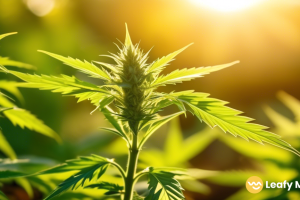
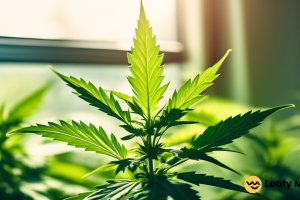
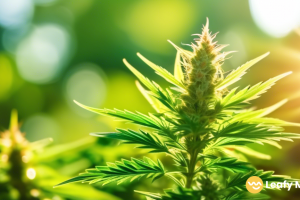




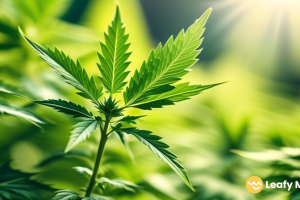
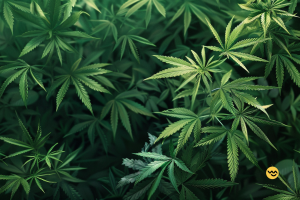
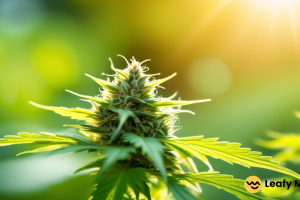
Leave a Reply